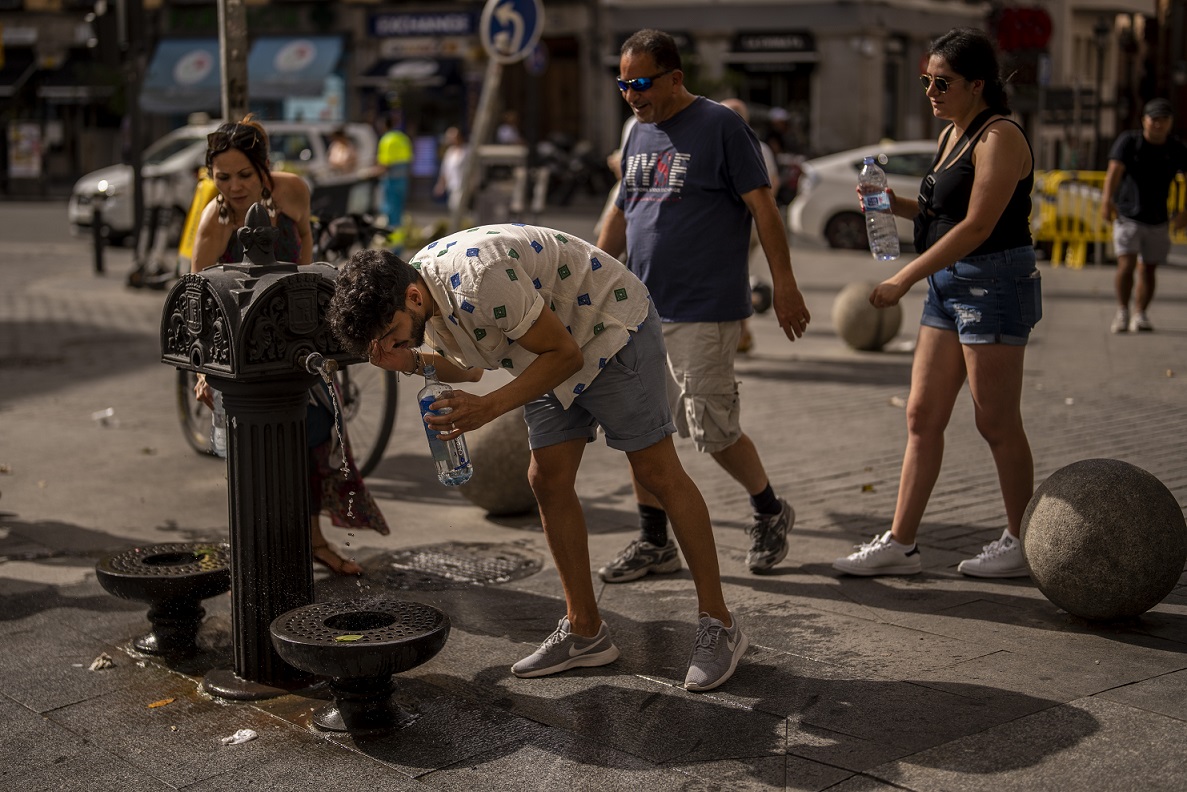New temperature records, fires, and bans on outdoor events are slamming the European continent after a historic heat wave arrived in the second half of last week. Temperatures approaching 40 degrees Celsius hit Czechia over the weekend, while parts of France, Austria, Germany, and Spain all posted record temperatures.
Experts describe the unusually scorching weather as a harbinger of the future.
Italy’s largest river, the Po, is so dry that warship wrecks are beginning to protrude from the water. In Catalonia, where thermometers showed up to 43 degrees Celsius last week, a large forest fire broke out again due to ongoing drought, forcing thousands of people to flee their homes. In the French department of Gironde, where the city of Bordeaux lies, authorities have banned outdoor activities, as well as indoor activities in locations without air conditioning.
The heat wave hit Europe earlier this year as well. Instead of the summer months, it came in mid-June and was even more intense. In some areas of Spain and France, it was up to 15 degrees warmer than usual, according to the World Meteorological Organization.
“I’m 86 years old, I was born here, but I don’t think I’ve ever seen a worse heat wave,” Jacqueline Bonnaud of Toulouse in the south of France told the BBC.
According to experts, the probability of extreme heat rising is due to climate change. A 2019 World Weather Attribution study found that heat waves commonly occur about every 30 years, but a hundred years ago, the temperature peaks were four degrees lower.
Climatologist Pavel Zahradníček from the Global Change Research Institute at the Czech Academy of Sciences also confirmed this to the Aktuálně.cz daily.
“In the Czech Republic, for example, tropical days start 18 days earlier than 60 years ago. At the same time, the last tropical days each year have been postponed by 12 days until September,” he says.
“Today, we are witnessing a harbinger of the future,” writes the World Meteorological Organization.
Townhouses as furnaces
Extremely warm weather can be a deadly problem for people who are infirm or have disabilities. For example, 15,000 people in France died in the heatwave of 2003.
The worst situation is in cities, which due to the lack of vegetation and method of construction, do not cool properly overnight, so high temperatures remain throughout the day.
“When these days and nights merge into a longer period, the health burden for the inhabitants increases and, unfortunately, our mortality rate also demonstrably increases,” adds Zahradníček.
High temperatures and lack of rain also threaten nature. The water evaporates from the soil faster, and the soil drought deepens. In the south of Spain, hundreds of birds have also died because of the current heat wave, leaving their nests built in concrete houses prematurely.
“(The nests) become furnaces, and birds that can’t fly yet are trying to get out because they can’t handle the temperature. They’re literally boiling,” said biologist Elena Moreno Portillo.
Adaptation is necessary
The World Meteorological Organization emphasizes the need for humans to adapt to warmer weather. It mentions, for example, an early warning system and the creation of action plans on how to manage heat waves. Retirement homes in France, for example, have special air-conditioned rooms with better ventilation where residents can take refuge during heatwaves.
Climatologist Pavel Zahradníček believes that in the Czech Republic, adaptation should primarily concern the urban environment where more green areas with access to running water should be created.
“Measures to address the root cause of climate change, the release of greenhouse gases, should be promoted at the government level. It is important that by 2050 temperatures have stopped increasing at such a rate so heatwaves become less common and more manageable,” he said.
Zahradníček also mentions that today, the number of hot days is three times greater than 60 years ago.
“On the other hand, this certainly does not mean that every summer will be warmer than the previous one. It is not at all impossible that average or below-average warm years will occur, but the long-term trend is clear,” he said.





